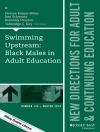This book reviews and analyses higher education financing and explores the innovative ways by both public higher education and private higher education institutes in the context of globalization, with India, Russia and Tanzania as a case study. It examines the diverse policy discourses which greatly influence the higher education systems based on evidence-based research. This book is arranged into four major themes. Part 1 deals with the various possible modes of financing of higher education, such as the credit market and voucher system. Part 2 deals with strategies to mobilize the resources. Part 3 deals with innovative and sustainable approaches to financing private higher education institutions. Part 4 discusses the policies and limitations with external financing of higher education. It is an interesting collection of various themes in different chapters by serious researchers. It is an excellent read for students, educators and policymakers interested in alternative and innovative practices in higher education financing. It is a highly informative book for researchers providing insights on how social and political dynamics impact higher education financing.
Innehållsförteckning
Chapter 1. Innovations in Financing of Higher Education: An Overview.- Chapter 2. Mode of Financing of Higher Education: An Assessment of the Possibilities.- Chapter 3. From State to Quasi-market in Financing Higher Education: Russian Transition.- Chapter 4. The Entrepreneurial University.- Chapter 6. Student Support System in India.- Chapter 7. 16. Financing of Higher Education: A Study of PM’s Special Scholarship Scheme for Jammu and Kashmir Students.
Om författaren
N.V. Varghese, Ph.D. in Economics, is Vice Chancellor of the National Institute of Educational Planning and Administration (NIEPA) and Founding Director of the Centre for Policy Research in Higher Education (CPRHE) at NIEPA, New Delhi. He was Head of Governance and Management in Education at the International Institute for Educational Planning (IIEP/UNESCO), Paris and Head of its Training and Education Programmes. He has been actively involved in educational planning at the federal and decentralized levels, and with the design and development of externally funded education projects in India, for many years. He has directed several research projects and has published more than 30 books and research reports and more than 200 research papers and articles on educational planning, financing and higher education.
Jinusha Panigrahi is Assistant Professor in the Centre for Policy Research in Higher Education at the National Institute of Educational Planning and Administration (NIEPA), New Delhi. She holds a Ph.D. in Economics from Jawaharlal Nehru University, New Delhi. She has several years of experience in teaching and research. Her research work lies in the areas of economics of education, financing of higher education, internationalization and private higher education. She is the author of the Book ’Higher Education Financing in India: Student Loans and Equity in Access’ (Routledge, 2022) and the Co-editor of ‘India Higher Education Report 2018 on Financing of Higher Education’ (SAGE, 2019) and ’India Higher Education Report 2021 on Private Higher Education’ (Routledge, 2022).












